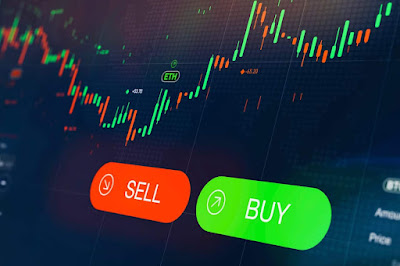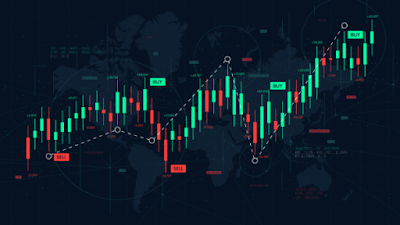In today's fast-paced digital era, the financial landscape has experienced a significant shift with the rise of trading platforms. These cutting-edge online platforms have become the cornerstone of modern investing and trading, providing individuals and institutions with unprecedented access to financial markets. This article explores the dynamic world of trading platforms, their role in shaping the financial industry, and the advantages they offer to traders of all levels.
1. The Emergence of Trading Platforms
The concept of trading platforms emerged in the late 1990s, as technological advancements and the widespread adoption of the internet revolutionized the financial sector. Traditional trading methods, often limited to phone calls and physical trading floors, were gradually replaced by sophisticated online platforms. These platforms connected traders to various markets, offering real-time data, advanced analytics, and user-friendly interfaces, making investing and trading more accessible than ever before.
2. A Global Marketplace at Your Fingertips
One of the most significant advantages of trading platforms is their ability to create a global marketplace accessible from anywhere in the world. Traders can now engage in buying and selling stocks, commodities, currencies, and other financial instruments across international markets with ease. This global reach has democratized investing, empowering individuals from all walks of life to participate in the financial markets.
3. Real-Time Data and Analysis
Trading platforms provide users with access to real-time market data, news, and analysis. This instant flow of information enables traders to make informed decisions promptly, seizing opportunities and mitigating risks efficiently. Advanced charting tools, technical indicators, and algorithms further aid in analyzing market trends and patterns, empowering traders to develop sophisticated strategies.
4. Diverse Range of Financial Instruments
Modern trading platforms offer an extensive array of financial instruments to trade, catering to diverse investment preferences. From stocks, bonds, and mutual funds to cryptocurrencies and commodities, investors can diversify their portfolios according to their risk appetite and financial goals. This broad selection enhances flexibility and allows traders to capitalize on emerging opportunities across various asset classes.
5. Accessibility and User-Friendly Interfaces
Trading platforms are designed with user convenience in mind, ensuring that both seasoned traders and newcomers can navigate the interface with ease. The user-friendly nature of these platforms facilitates a smoother onboarding experience, eliminating barriers to entry for those new to investing. Furthermore, the availability of mobile applications enables traders to stay connected and manage their portfolios on-the-go.
6. Risk Management Tools
Managing risk is a fundamental aspect of trading, and modern platforms equip traders with essential risk management tools. Features like stop-loss orders, limit orders, and margin trading enable users to control their potential losses and protect their investments from market volatility. Additionally, some platforms offer educational resources to help traders understand risk management strategies and make more informed decisions.
7. Community and Social Trading
Several trading platforms incorporate social elements, allowing traders to interact, share ideas, and follow the activities of experienced investors. This feature, known as social trading, enables novices to learn from the experts, while experienced traders can gain insights from collective intelligence. Collaborative environments foster learning and encourage community engagement within the platform.
Conclusion
Trading platforms have redefined the financial landscape, democratizing access to global markets and empowering individuals to take control of their financial destinies. With real-time data, diverse financial instruments, user-friendly interfaces, and risk management tools, these platforms cater to both experienced and novice traders. As technology continues to evolve, trading platforms will undoubtedly play an even more significant role in shaping the future of finance, making it a thrilling time for investors and traders alike. However, it is crucial to approach trading with caution and educate oneself continuously to make informed decisions and maximize the potential benefits these platforms offer.




Comments
Post a Comment